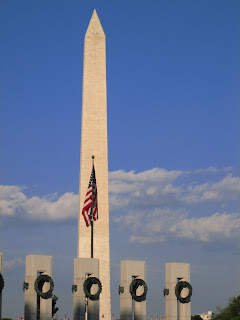






From a different day: a gorgeous sunset on one side and a looming thunderstorm on the other. Next time it's going to be a sunrise.













The number of people at the largest gatherings in the nation's capital, according to the National Park Service:
Event Date Crowd
Vietnam War moratorium rally Nov. 15, 1969 600,000
Iran hostage welcome Jan. 27, 1981 500,000
Vietnam War 'Out Now' rally April 24, 1971 500,000
Million Man March Oct. 16, 1995 400,000
March on Washington for Gay April 25, 1993 300,000
and Lesbian Rights
20th anniversary of Civil Aug. 28, 1983 300,000
Rights March on Washington
Solidarity Day Sept. 10, 1981 250,000
Civil Rights March on Washington Aug. 28, 1963 250,000
Source: National Park Service; USA TODAY research by Cindy Hall

 ." We walked through the rose garden (if only I could take everyone through that rose garden), and a group of parents walked by, all talking about how beautiful the garden was. I heard one of the men say "I'd like one of those !" and I couldn't help but smile and think that it was mine, and that I had owned a part of it. That reminded me of how a friend of mine had compared Swarthmore to a romance in his
." We walked through the rose garden (if only I could take everyone through that rose garden), and a group of parents walked by, all talking about how beautiful the garden was. I heard one of the men say "I'd like one of those !" and I couldn't help but smile and think that it was mine, and that I had owned a part of it. That reminded me of how a friend of mine had compared Swarthmore to a romance in his 